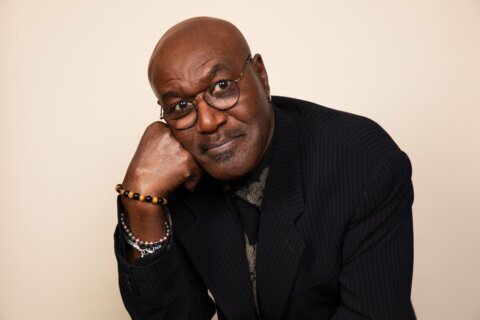Hear our full conversation on my podcast “Beyond the Fame.”
In an attempt to trim the Oscar telecast to three hours, ABC pressured the Academy of Motion Picture Arts and Sciences to move eight technical categories to the pre-telecast.
The categories of Documentary Short, Film Editing, Makeup & Hairstyling, Original Score, Production Design, Animated Short, Live-Action Short and Sound will be awarded in a taped ceremony before the live show, then aired as a montage of acceptance speeches.
D.C. native Russell Williams, longtime professor at American University, took the news hard, having won Best Sound for “Glory” and “Dances with Wolves” and donated his statues to the Smithsonian National Museum of African American History & Culture.
“First, I ran to the bathroom and threw up,” Williams told WTOP. “I call these categories The Irate Eight. … The producers decided they were going to excise or trim the fat. … Maybe the word came down from the network, ABC, owned by Disney. … The Academy leadership also played a role saying we need to do something to increase viewership.”
Last year’s ratings fell to a record low of 9.85 million viewers, a nearly 59% percent drop from the 23.6 million viewers that tuned in the previous year, according to Nielsen.
“I understand the pressure to get the numbers from Nielsen up and keep the show moving, but I don’t think getting rid of these eight categories is going to make the difference,” Williams said. “No one suggested they take the President of the Academy’s speech, pre-tape it, edit it and run it as a package, because I’m sure that’s why everybody tunes in.”
In reality, the ratings drop has more to do with larger societal forces, from political divisions to network television tanking across the board due to our splintered streaming world.
“There’s not very much appointment television that the younger generations are really interested in,” Williams said. “If we’re talking the Super Bowl, OK, those are numbers that, depending on the teams, generally speaking they stay much higher than anything else on appointment TV and the ad revenue generated is going to be higher than anything else.”
Under the new format, the eight technical categories will receive their Oscars inside the auditorium while the actors are still posing for photographs outside on the red carpet.
“I can’t even imagine how that would look,” Williams said. “What does that mean? You go to an empty auditorium, you accept your award and you speak to a group of empty seats? In my speeches … I’m actually pointing, gesturing and looking right at Kevin Costner and saying, ‘I want to thank Jim and Kevin, Jim Wilson the producer, for giving me the call.”
Granted, the move is not unprecedented.
“It’s not unheard of in other award shows,” Williams said. “The Grammys have done it for decades because they have so many more categories. The Emmys have done this for decades because they have two or maybe even three nights that they need to present all the awards. … The [Oscars are] the granddaddy of the entertainment industry awards.”
The idea is that the pre-taped categories will change on a rotating basis every year.
“Who’s it going to be next year?” Williams said. “Are they going to drop Cinematography? Will they drop Supporting Actor? I doubt any of the SAG categories are going to get dropped. … Whoever is at ABC on Oscar night should cut the sound off the broadcast and force us to read lips for three hours. Then all of a sudden, sound will be important again.”
Several craftspeople have resigned from the Academy in protest, while hardcore fans are tweeting the hashtag #PresentAll23. It all comes down to a simple question: should the Oscars be a big tent to bring in more people? Or should they cater to their devoted fans?
“Hardcore viewers and folks who know the inner-workings of each craft appreciate the fact that these names that we know, the big stars that give awesome performances each year, we wouldn’t know any of their names without the technology needed to bring them to the screen,” Williams said. “You need lighting … you need to hear what they’re saying.”
He says this year’s nominees in particular deserve recognition for their crafts.
“Look at the production design of ‘Nightmare Alley,'” Williams said. “Are you saying that’s not important enough to be on the show and see those people who put their lives into their respective crafts? … I don’t think it’s fair to just start pointing at certain crafts and saying, ‘You don’t deserve to have your life’s work … acknowledged by your peers.'”
The change also upsets local feel-good stories. For instance, the Maryland School for the Deaf in Frederick, Maryland, was excited to hold an Oscar viewing party to see if their Netflix film “Audible” would win Best Documentary Short. Now, it’s not part of the live show.
“We are devaluing the arts community,” Williams said.
Hear our full conversation on my podcast “Beyond the Fame.”








